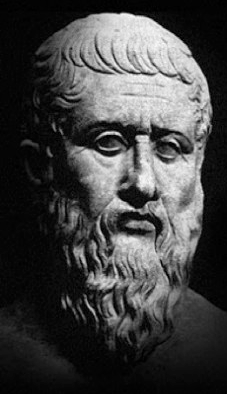Incredible footage of a drive through a California wildfire.
Tag Archives | Science Fact
The Fire Down Below
This story about the scientific controversy over the extinction of the dinosaurs (asteroid or no asteroid?) is interesting; but what I want to comment on here is this passage:
The impact [of the asteroid, if there was an asteroid] unleashed giant fireballs, crushing tsunamis, continent-shaking earthquakes, and suffocating darkness that transformed the Earth into what one poetic scientist described as “an Old Testament version of hell.”

Was Fantasia right after all?
The “poetic scientist” is not identified. I suppose there’s no reason to expect scientists to be any less ignorant about the Bible than most Bible-believers are about science (and the Bible, for that matter), but – what “Old Testament version of hell”? It remains controversial among Biblical scholars whether Hell is even a thing in the Old Testament; but even if it is, it goes pretty much undescribed. All the lake-of-fire-and-brimstone stuff about Hell is in the New Testament. The Old Testament does have some bombastic apocalyptic prophecies, but they describe a future condition of Earth, not Hell. (Some Christians [e.g., Adventists] believe that all Biblical references to Hell actually are references to a future condition of Earth, but that hasn’t been the traditional view.)
I suspect the “poetic scientist” simply assumed that any lurid passages about Hell must belong to the Old Testament, given the New Testament’s “kinder-gentler” reputation. But whether or not the New Testament really is kinder-gentler than the Old depends very much on which parts one focuses on (unsurprisingly, given that both texts are collections of works by a variety of authors from a variety of time periods and with a variety of viewpoints).
Soap Opera
Things I notice when I’m in the kitchen waiting for something to finish cooking on the stove, and there’s nothing to do but watch the water in the dishpan:
1. Soap bubbles act as though they’re gravitationally attracted to each other. When there’s a large cluster of bubbles over here, and a lone bubble (or smaller cluster of bubbles) about an inch or so away over there, the lone bubble will move toward the large cluster, very slowly at first, and then gradually accelerating until it merges with the cluster. I know nothing about the physics and chemistry behind this phenomenon. (Something to do with surface tension?)
2. My eggbeater seems to have an air pocket in the handle. When I put it in the dishpan, it emits a slow and steady stream of bubbles. Most of the time, dishpan suds contain bubbles of various sizes all mixed together; but the bubbles coming out of the eggbeater handle are of uniform size, which presumably explains what happens, next, namely, that as the bubbles rise to the surface they spontaneously organise themselves into regular hexagonal grids. Order from chaos, man.
Missing the Train to Elea
Popular culture gets Zeno’s paradox wrong again:

There’s a widespread impression that Zeno’s proposed problem is that after you reach the halfway point to your destination, you then have to go halfway to the remaining distance, and so on ad infinitum, so that you get closer and closer to your goal but never reach it.
But that’s not how the paradox goes. The problem is much worse. The paradox is that before you can get halfway to your destination, you have to get halfway to the halfway point, and so on ad infinitum, so that you can never even start moving. (Here’s Rose Wilder lane making the same mistake.)
Probably the mistake arose from someone conflating this paradox with another of Zeno’s paradox, the Achilles, in which the fastest runner gets closer and closer to catching up to the slowest runner.
Beyond the Farthest Star
Anderson Cooper just described the new photos from Pluto as coming “from the edge of our galaxy.”
Plato and Voltaire on Vaccination
Voltaire on vaccination is right here. The Plato angle is a bit more complicated.
In Plato’s Laches, the question arises as to the relationship of courage (and by extension, virtue generally) to risk. On the one hand, the courageous person is supposed to be admirable, and so would not take foolish risks; thus being guided by wisdom seems built into the notion of courage. On the other hand, the riskier an action is, the more courage it takes to do it; the wiser you are, the better able you are to reduce your risks, making courage more useful to the less wise. So does greater risk correlate with more courage or less courage?
Plato’s solution, as I read the dialogue, is to distinguish two kinds of wisdom (or expertise): technical expertise, which involves knowing how to reduce one’s risks, and ethical expertise, which involves knowing which risks are worth taking. Plato goes on to illustrate the distinction by asking whether physicians, by being experts on health and disease, are thereby experts on what is worth hoping for and worth fearing (given that health is worth hoping for and disease worth fearing). Plato’s answer (again, as I read him) is that while being a physician makes you an expert on what will cure you, it does not make an expert on whether you are better off being cured or at what cost.
Plato’s distinction is one that is being lost in the current debate about vaccination, as the two kinds of expertise are being persistently conflated. One of the issues under debate is what the benefits and risks of vaccination actually are, in terms of quantified probabilities; that is a medical issue. A different issue under debate is whether, for any given probability assessment of benefits and risks, the benefits are worth the risks; that is not a medical issue, and having medical or other scientific training gives one no special insight into it.
I’m not offering this distinction as a magic bullet to resolve the political dispute. It’s not as though one type of issue falls within the jurisdiction of the law and the other doesn’t; legal expertise doesn’t automatically carry with it either medical or technical expertise, but on the other hand, applying the law will often require taking a stand on both.
As far as the political issue itself goes, I think a consistent libertarian can forcibly quarantine a Typhoid Mary, but forcibly vaccinating on the basis of a possible future risk of measles is too attenuated, and opens the door to all sorts of regulations to prevent behaviour that poses a slight risk to others (like banning Mein Kampf because people who read it might become Nazis). But of course my position requires taking positions on both the medical and the ethical issues. In any case, the point of this post is not to take a side on the vaccination debate, but just to distinguish two issues that keep getting run together.
